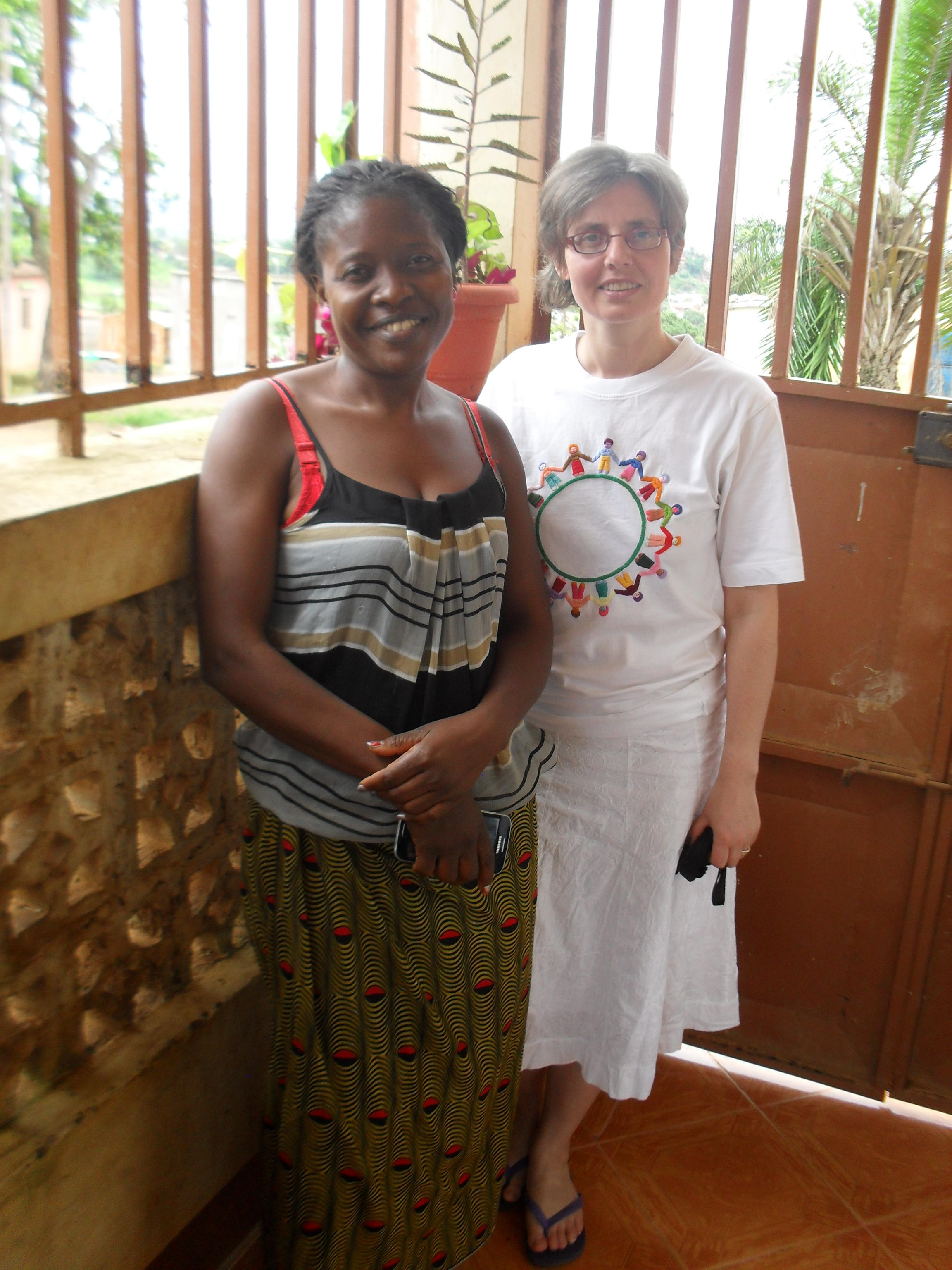
In Uíge, with Bembe informant
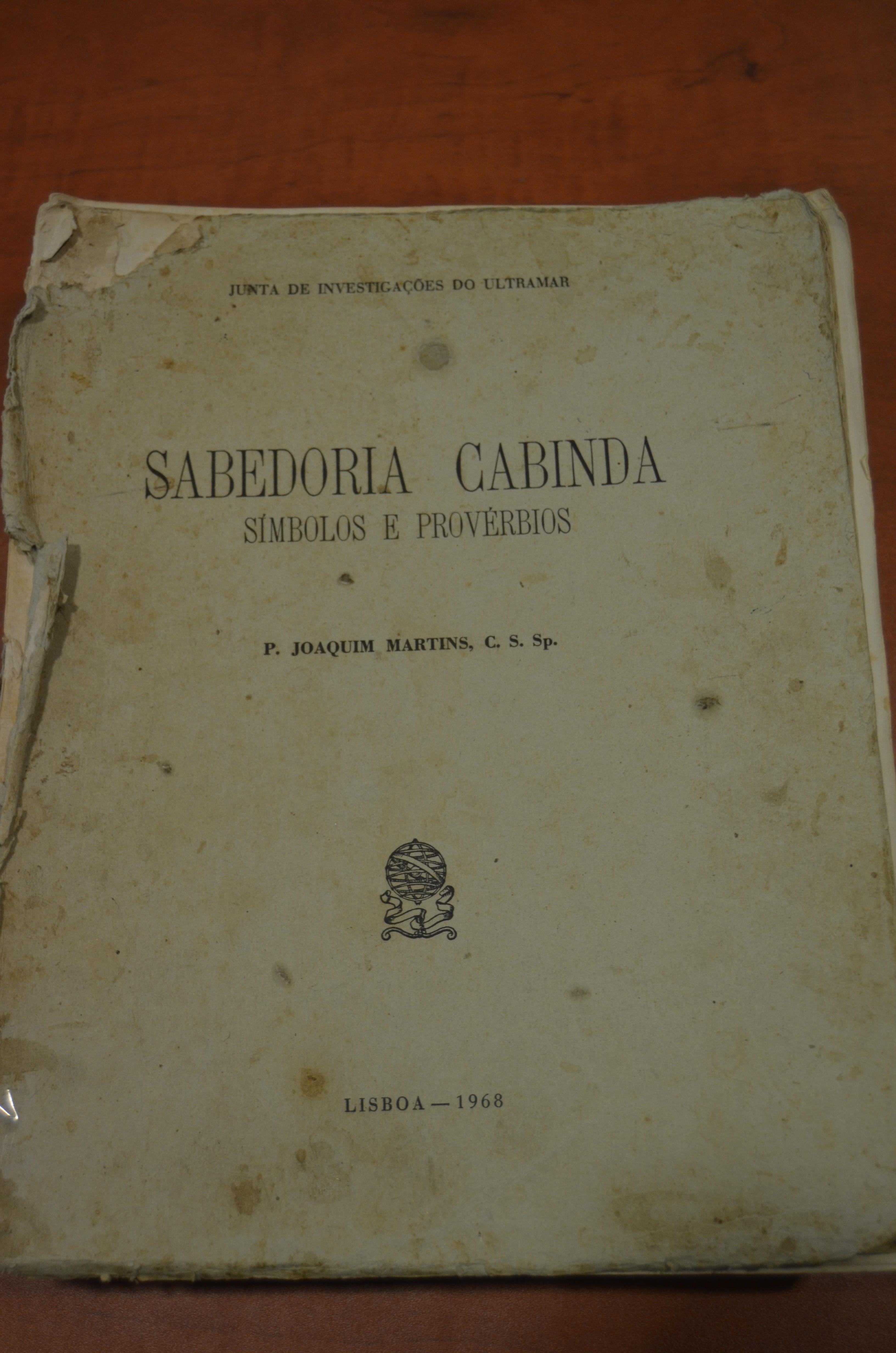
Book about Cabindese proverbs and symbols
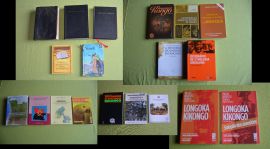
Some of the acquired books
First Linguistic Fieldwork in Angola
From 5 November until 24 December 2015 Heidi Goes carried out linguistic fieldwork on a number of poorly and undocumented Kikongo varieties spoken in Angola.
Objectives
She took off for Angola with the following objectives: Collect basic lexical and phonological data on poorly known varieties of Kikongo, with a focus on the varieties found in the provinces of Uíge and Cabinda, and gather information on the geographical distribution of these varieties.
Types of data collected
For each of the studied varieties, she tried to gather basic vocabulary (the Swadesh-200 list), and she collected targeted vocabulary in order to trace regular sound changes and long-distance phonological processes.
Outcomes
The following results were obtained:
- * Documentation of six poorly or undocumented Kikongo varieties spoken in Northern Angola: Dihungu, Mbembe, Ndamba, Solongo, Tsotso, Pombo (and some Zombo and Kisikongo).
- * Documentation of eight poorly or undocumented Kikongo varieties spoken in Cabinda: Cisundi, Ikoci, Ikwakongo, Ilinji, Iwoyo, Kisundi, Vili, Yombe, including estimates on their geographical distribution.
- * Information about 'Ibinda' and its relation to other Kikongo varieties.
- * Book collection:
- - corpus material: primers, bibles and other religious texts in Kisikongo,
considered the standard variety, and stories in 'Ibinda'; - - grammar and dictionary of 'Ibinda', book about Yombe, and other
(non-linguistic) books about Cabinda; - - Kikongo study book, and several theses written by Angolese scholars
about different varieties of Kikongo. - * Interviews with people of the association União Traditional do Kongo em Angola (UTKA).
- * Recording of ethno-archaeological data with respect to the ancient female potters' tradition in Lutanda (video and sound of a joint interview with four pottery makers).
(Heidi Goes could also be heard in an interview at the Foreign Language Department of the National Radio (in French) about her experiences in Angola.)
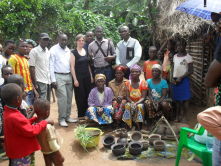 Heidi with female potters, interpreters, other helpers and most of the villagers of Lutanda after a demonstration and interviews with the four women |
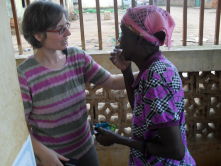 With Pombo informant |
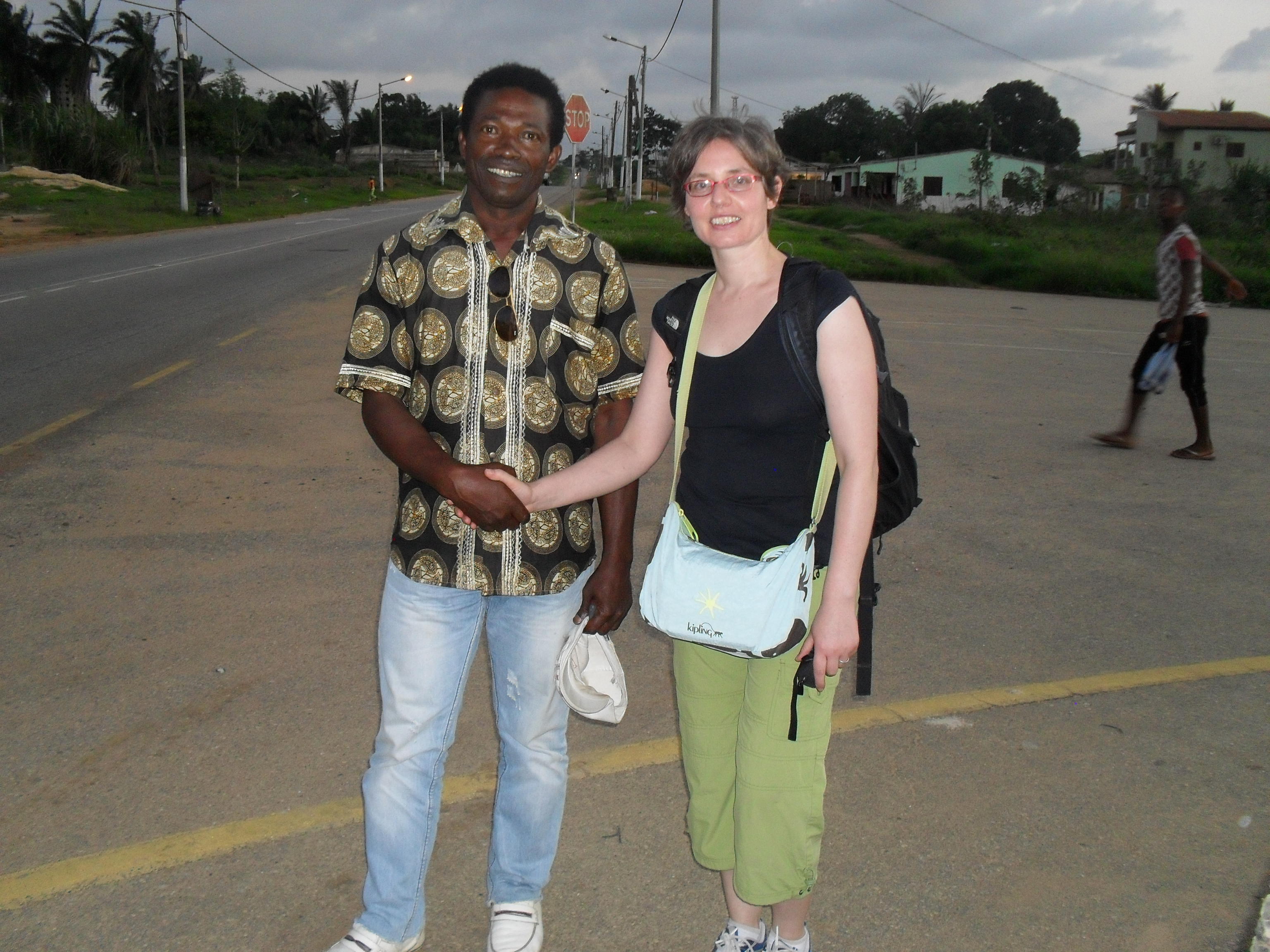 Saying goodbye to Ikoci informant, in Malembo |
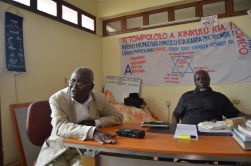 Visit to UTKA |
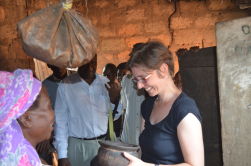 After the interview with potters, Heidi received a pot from one of the women |
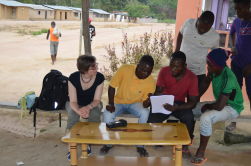 Working on Ciwoyo in Chimbuande |
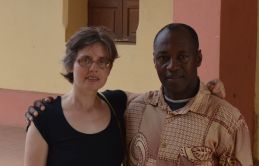 Heidi with the author of a grammar and dictionary of Ibinda, Silvino Mazunga |
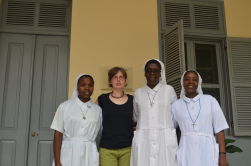 Heidi at the convent in the city of Cabinda |
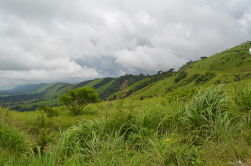 On the way from Uíge to Lutanda |
